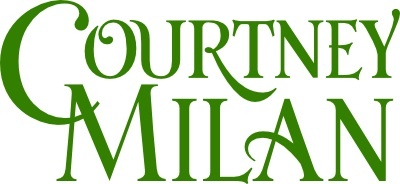So, Book #2 has a bit of a running theme here and there with breath, and the word breathtaking, and riffs thereon. It’s enough of a theme that it becomes material to a crucial scene in the book, a scene that I could not imagine rewriting in any way to be anything other than it was.
Imagine my wince of pain when the infinitely wise Franzeca Drouin pointed out that the OED does not list “breath-taking” until Mark Twain uses it in . . . 1880. Ow.
Or, to use more historically inaccurate language: Fuck.(*)
A frantic search ensued for synonyms or near synonyms. As the search drew on, I would have settled for things that might have looked like synonyms if viewed in extremely dim lighting. And I was tempted. I was sorely tempted. Historical accuracy be damned; how many readers were going to notice that the word “breathtaking” is not period for 1844? But down that road lies a million different historical inaccuracies, and once you start down that dark path, forever will it dominate your destiny and turn your books into historicals breathtaking (ha ha) in their wallpaperishness.
Finally, I checked google books and found this.
Whew–breath-taking, figurative sense, 1831. There are a few more in the 1830s to 1840 range. And I am content, sitting at 1844. This just goes to show that the OED is not omniscient. Almost, but not quite.
*heaves giant sigh of relief*
—
* Fuck, of course, has been in use as a noun and a verb for ages–“I’m eager for a fuck” is period even though it sounds ridiculously modern to my ear, as is “he fucked her.” But fuck as a general expression of dismay is not. Alas.

Shit is a gift from the Anglo-Saxons,I discovered yesterday. http://www.bbc.co.uk/dna/h2g2/A753527 has lots of good info about 4 letter words and the like.
Good sleuthing, Courtney.
I guess the answer is that the OED is omniscient for a “yes” but extra sleuthing could follow a “no” answer.
The scary part for me is that sometimes I remember when a word first enters the lexicon, and I think “Oh yes, ‘issues’ as a collective psychological noun, late ’70’s.”
But I’m breathlessly awaiting your breathtaking new book…
I can’t remember whether I actually used it. But I was hugely (ha!) pleased to discover that the word “hard-on” predated my book.
So, definitely understand you. 🙂
gg’s mom-
That site was pretty interesting.
Has fuck really been around THAT long? See, now I wonder who was the first person to decide that fuck would make a nifty slang word for sex. Not that it bothers me at all. I’m just wondering who was the first person to think of it.